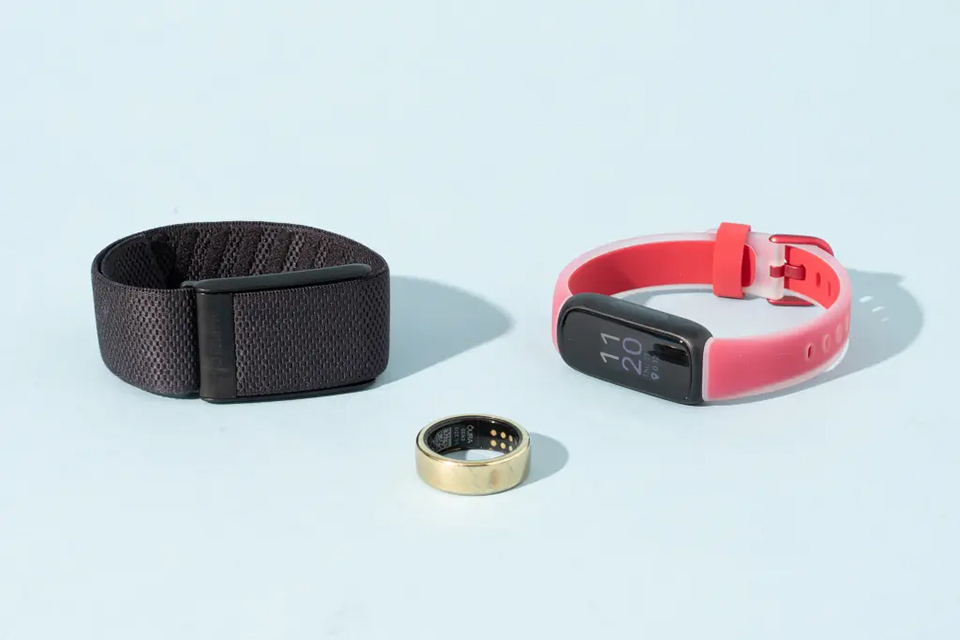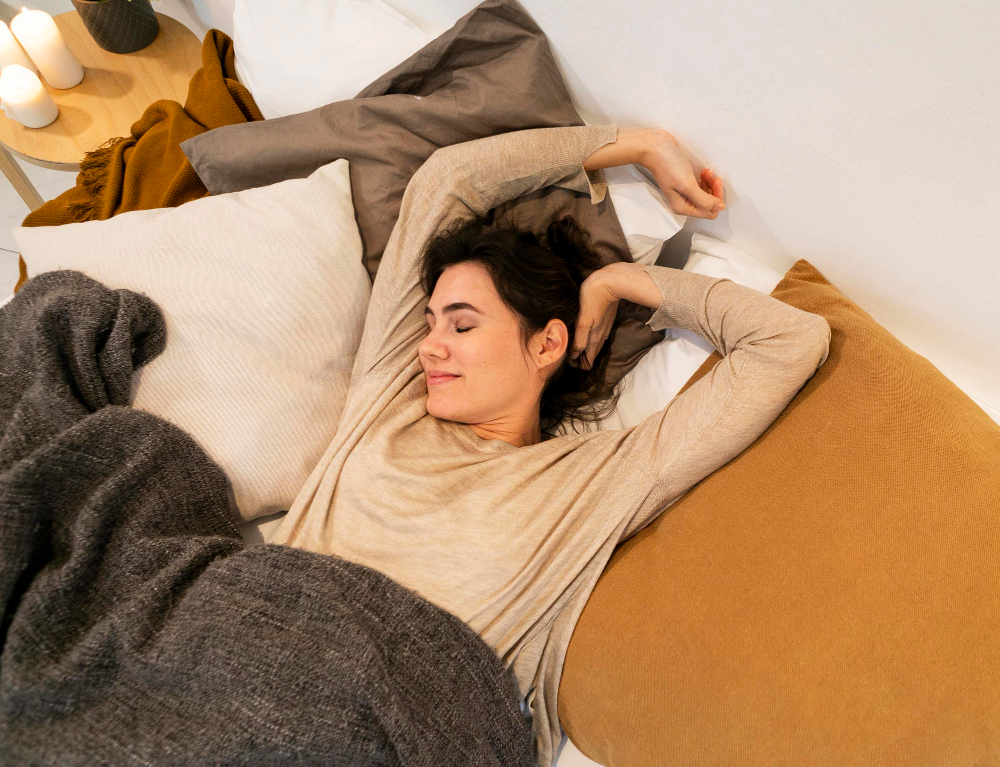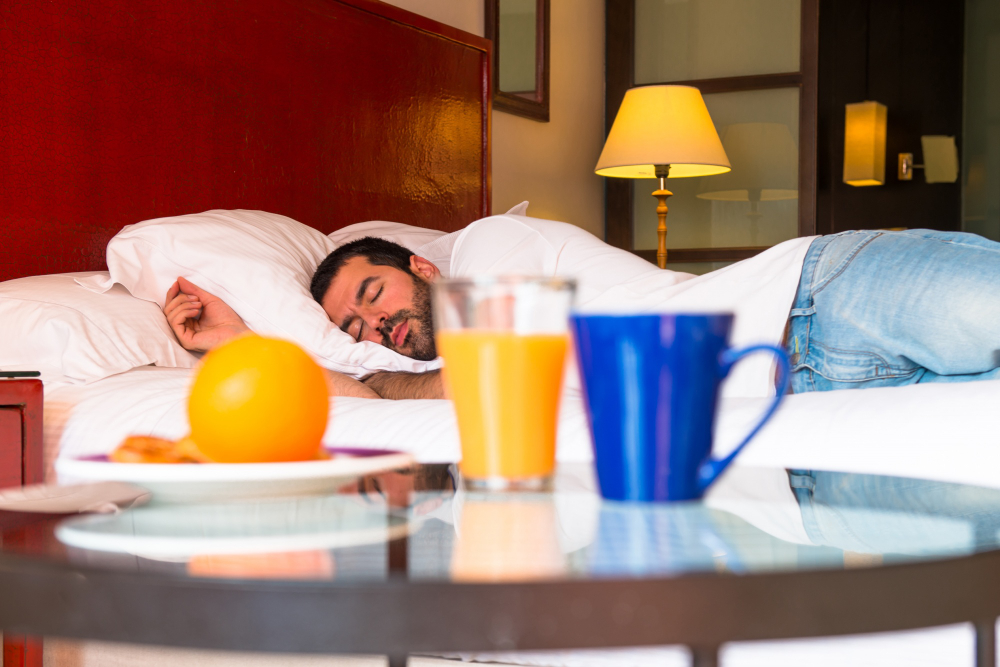
How did you sleep last night?
When someone asks you that question, you generally have a good idea of how you slept—or at least how you felt once you woke up. But with sleep trackers, you can measure your sleep experience in ways you never imagined.
Fasten your wristband and join us as we explore the world of sleep trackers and uncover how you really slept last night.
What Are Wearable Sleep Trackers?
Wearable sleep trackers offer a unique look into the world of sleep. These devices, most commonly worn around the wrists, use sensors to record movement, heart rate, and sometimes even oxygen levels. Monitoring these factors while you sleep can shed light on your nocturnal habits, revealing the answers to questions you didn’t even know you needed the answers to…
Are you tossing and turning throughout the night without even realizing it?
How quickly do you fall asleep after turning off the lights?
Do you sleep better with the heat off?
But before we delve into the specifics of individual sleep trackers, let’s demystify some of the basics.
How Do They Work?
Most sleep trackers use sensors like accelerometers to detect movement and heart rate monitors to record data as you sleep. The trackers then use this data to estimate when you enter in and out of different sleep stages, how long you’re sleeping, and even the quality of your sleep.
The Sleep Score
Your sleep score, similar to a nightly report card, boils down all of the sleep data gathered throughout the night into a singular, numerical representation of your night’s rest. But not all sleep trackers provide you with a nightly sleep score, and not all sleep scores are alike.
While a sleep score might offer insights into some of your lifestyle and sleep patterns—maybe you sleep better when you’ve worked out during the day, or your sleep score suffers after a night out drinking with friends—your sleep score is just one measure of how well you slept. It’s also important to track other sleep-success measures. Did you wake up feeling refreshed and ready for the day? Or were you tossing and turning all night long?
Now that we have some sleep tracker basics out of the way, let’s shift the spotlight to the contenders: Fitbit vs. Apple Watch vs. Garmin.
Fitbit vs. Apple Watch vs. Garmin: A Head-to-Head Comparison
In this sleep tracker showdown, we’ll look at a few of the key characteristics of three common wearable sleep trackers and consider their versatility, user-friendliness, and sleep-tracking features.
Fitbit
Sleep Tracking: Fitbit excels in its simplicity and product options. It shares insights into your sleep duration, consistency, and different sleep stages, offering a comprehensive snapshot of your night.
Fitbit also gives you an overall sleep score (0-100) based on three individual sleep scores (duration, quality, and restoration). The sleep score ranges are:
- Excellent: 90-100
- Good: 80-89
- Fair: 60-79
- Poor: Less than 60
User-Friendliness: Fitbit is lauded for its user-friendly interface and straightforward sleep score, making it accessible for those new to sleep tracking.
Overall Versatility: Fitbit’s strength lies in its simplicity and focus on core features, activity tracking, health metrics, and fitness tools, making it an excellent choice for users with an active lifestyle.
Apple Watch
Sleep Tracking: Beyond its smartwatch prowess, the Apple Watch sleep tracking features measure sleep duration, heart rate, and movement disturbances, but you won’t wake up to find a sleep score in the morning. Fortunately, you can use third-party sleep analysis Apple Watch apps for a deeper insight into your sleep.
User-Friendliness: For those already familiar with the Apple ecosystem, the Apple Watch ensures a user-friendly experience and easy compatibility across accessories.
Overall Versatility: The Apple Watch offers an extensive range of smartwatch features, making it an ideal choice for those seeking a versatile accessory that can take them from day to night.
Garmin
Sleep Tracking: Identical to Fitbit’s numerical ranking system, Garmin sleep tracking assigns a sleep score on a scale from 0-100 to summarize the overall quality of your sleep. This number is calculated based on how long you slept, how well you slept, and evidence of recovery activity occurring.
User-Friendliness: Garmin’s interface may have a steeper learning curve, but it rewards users with a variety of detailed health metrics beyond sleep.
Overall Versatility: With its emphasis on holistic health, Garmin appeals to users aiming for a comprehensive health-tracking experience with an active, physical lifestyle.
Choosing Your Sleep Score Champion
The journey to better sleep awaits, and a wearable sleep tracker might be the compass that will help guide you there. When choosing the wearable that is right for you, be sure to consider your lifestyle, preferences, and the features that resonate with your sleep-tracking goals.
Here’s to more restful nights and energized mornings!



